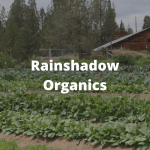Farm and Ranch Resiliency Award Application
“In Cahoots” Heirloom Apple Orchard Collaborative is applying for the Resiliency Award in the Market Disruption category.
– Diversified Sales Stream-“In Cahoots” incorporates fruit from multiple growers to provide apples for the local distilleries/brewers to create a brandy, cider, or craft beverage that is made from Central Oregon apples. This is made possible by combining the growing power of multiple orchards through collaboration.
– New and Innovative: The power of our heirloom apple collaborative enabled us to create a niche product that was not available before. This collaboration allows us to use apples from multiple growers to create a locally sourced farm to bottle product. This is a new and innovative product offering in Central Oregon.
OUR STORY
My name is Carolyn “CJ” Johnson and I am the founder of “In Cahoots” Heirloom Apple Collaborative.
“In Cahoots” collaborative is made up of community members who come together around one thing: apples. Our apples are locally sourced heirloom apples with rare and vintage varieties. The collaborative strives to be good stewards of the land, using responsible growing practices and restoring old apple trees. Each owner doesn’t have enough apples to create a marketable product. When combined we have enough apples to provide to the local businesses to create cider, brandy, beer, and other specialty beverages. Our apples have been crafted into adult beverages at 10 Barrel Brewing, Deschutes Brewery, Ale Apothecary and Crux Fermentation. Most recently we have partnered with Oregon Spirit Distillery to make the first apple brandy that uses heirloom apples from Central Oregon.
“Several of Our trees are ~100 years old, the apples have a story.”
Our story is a story of discovery, unveiling the historical value of our old apple trees and transforming them from “neglected old trees” into “productive” Our journey began in 2006 when we decided to revive our old and abandoned orchard. During the initial stages we learned that our orchard was established in the early 1900s when the pioneers settled the Terrebonne valley and irrigation was established throughout Central Oregon. Some of the apple trees in the Terrebonne orchards were allegedly planted by Frank and Josephine Redmond, the namesake of Redmond Oregon.
Next step was to identify what kind of apples were in our orchard. We enlisted the services of Shaun Shepherd, the “Apple Detective” who together with Joanie Cooper founded the Temperate Orchard Conservancy in Molalla in 2012. Shepherd determined that several of our apple trees were rare varieties that have not been found elsewhere. Scions (cuttings) from our orchards have been propagated in the Orchard Conservancy in an effort to preserve the rare varieties.
After learning the historical value and the fact that we had rare apple trees, we set out to identify similar orchards/trees and preserve these trees by restorative pruning. The trees responded favorably and provided a bountiful harvest. The collaborative has grown to include several orchards throughout Terrebonne, Tumalo, and Madras. Our current project is to create a fruit tree registry to identify additional stakeholders available to the collaborative.
The collaborative was formed as an effort to increase our harvest so that we would have enough apples to meet the minimums required in local fermentation products. We work tirelessly to preserve forgotten orchards and bring new life to fallen fruit, while adding to the local economy.
HOW IN CAHOOTS HAS INCORPORATED RESILIENCY BY SHARING RESOURCES
The collaborative also allows us to share many aspects of growing apples including organic pest and disease control strategies, educational resources, marketing, harvesting, and tree management with the aim of maintaining the health of our trees to maximize our harvest and create a sustainable farm to bottle operation which will support our trees, our environment, and the local business.
Each year, we are faced with numerous production challenges that result in lower harvest yields. Here are examples of how the collaborative allowed us to work together to overcome the production challenges:
– Pest Management: With the guidance of Dr Alan Knight, research entomologist at USDA, we’ve implemented an integrated pest management program across all of the orchards. This has transformed our fruit from buggy apples to beautiful choice apples, thus increasing our volume of usable fruit throughout all orchards in the collaborative.
– In an effort to improve pollination and fruit yields, our orchards participated in the OSU Extension mason bee project to monitor native mason bees in our region.
– In recent years, we’ve experienced more frequent and significant weather events. Warming trends have caused a worsening of the pathogens in our orchards. We’ve implemented an organic fire blight management program using a yeast product that can slow down the destruction from the fire blight bacterium, which is a common and frequently destructive disease of pome fruit trees. This year we are combating the apple rust, a fungus that has infected one of our smaller orchards.
– We’ve enlisted the help of industry efforts in several aspects of the collaborative. Pomologist Shaun Shephard, “The Apple Detective” determined that the presence of rare apples in our orchards. This adds uniqueness to our product line.
– We enlisted the service of an experienced arborist who has helped restore all of the orchards in our collaborative. He transformed the neglected trees into highly productive and thriving trees.
– Shared marketing strategy: Advertising our collaborative through social media, magazines, HDFFA
We believe that they have strength in numbers and that we’re better when “IN CAHOOTS” with other local growers.
THE PROBLEMS, CHALLENGES, OPPORTUNITIES:
– There was no strategy to use local fruit. This was an untapped niche market opportunity to create a local product using the fruit
– Unmet needs-brewers & distillers require large volumes of fruit to create product. This often requires fruit from multiple growers. Need organization to network with local growers and combine harvests in order to meet the minimums required to make a local craft beverage
– Abandoned heirloom apple trees that are neglected leading to diseased, rotten, and bug infested fruit that is not suitable for consumption. Fruit trees that are abandoned are often removed, leading to the disappearance of rare varieties of old heirloom apples
– No formal mechanism to identify unused local fruit. Need to identify and sustain rare apple varieties throughout Central Oregon
– Need for education, shared resources to help local growers restore and manage their tress in an environmentally friendly manner.
THE STRATEGIES:
Formation of growers collaborative to share resources, education, labor, marketing, identification, pest and disease management plans, and combining local harvests to create a local craft beverage.
LONGEVITY AND IMPACT OF THIS PROJECT:
This project started in 2006 and has “grown” every year.
The formation of the collaborative has resulted in the resurrection of forgotten and neglected heirloom apple orchards throughout Central Oregon. Restoration of the trees over several years has resulted in trees that are thriving, healthier and more productive.
Historic Preservation: Because of the collaborative, these heirloom varieties are being preserved and sustained for generations to come. The collaborative has enabled us to forge long lasting relationships with pome experts to facilitate identification of lost and found heirloom trees. Apples tree scions (cuttings) from trees grown by collaborative members are planted in the Temperate Orchard Conservancy where their heritage will be preserved forever.
We’ve been able to foster long standing relationships by partnering with the local businesses.
PROMOTION OF ENVIRONMENTAL SUSTAINABILITY:
– Using local fruit instead of purchasing juice from remote sources.
– Incorporation of organic pest and disease management strategies help to promote environmental sustainability.
– Sustainable agriculture through preservation of rare varieties of apple
– Restoration and rehabilitation neglected heirloom apple trees.
ECONOMIC VIABILITY:
The collaborative has allowed us to form NEW partnerships with several different distillers/brewers and growers in Central Oregon to create a unique farm to barrel product using apples from local growers to create an ANNUAL PRODUCT LINE. Most recently, our In Cahoots harvest will be featured in the exclusive Hawthorne series at Oregon Spirit Distillery for an annual brandy release.
The fruit tree registry will allow our collaborative to “grow” so that we have more local fruit available to the producers.
Photo courtesy of In Cahoots Heirloom Apple Orchard.







